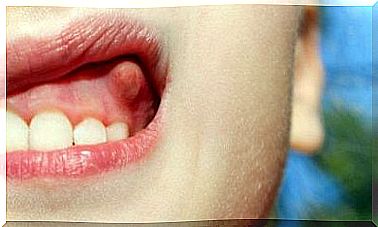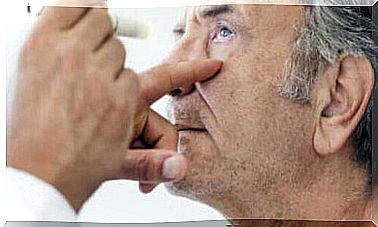Why You Should Fast For A Blood Test
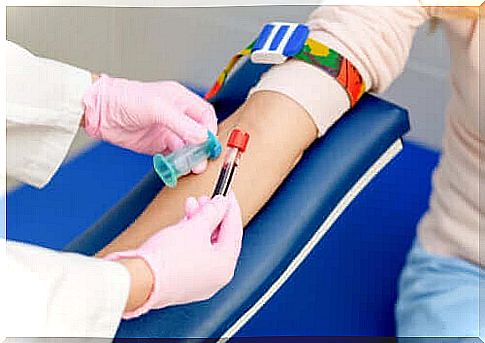
A blood test is one of the most common types of medical examinations because they provide a lot of information about a person’s health. In fact, it is a routine and basic procedure when it comes to a medical procedure.
In general, patients should fast for at least eight hours before the blood test and, if possible, have their blood drawn in the morning.
Blood tests can help analyze various parameters. Often doctors want to order specific tests to confirm or rule out a particular diagnosis. However, many values are more a matter of routine. For example, there are blood sugar values or the composition of the blood.
In the article below, we would like to discuss why patients should fast before the blood test. In other words, why is it so important not to eat or drink anything for at least eight hours before the procedure? We will answer this question and more.
What are blood tests for?
Blood testing consists of drawing blood from the patient and analyzing the sample in a laboratory. They allow doctors to study many different aspects of the body to obtain information about the general health of patients. At the same time, the information can shed light on the condition of a specific organ.
In general, the blood tests contain a differential count of blood cells. This refers to the concentration of each of the cell types that are in the blood.
In other words, red blood cells, white blood cells and platelets. In addition, this makes it possible to observe the shape of these cells to ensure that they are normal.
In the same way, blood tests allow the analysis of different biochemical values. For example, the level of glucose or iron in a person’s blood. Within this group of values we can also mention the following:
- cholesterol
- triglycerides
- thyroid enzymes
- urea
- and so forth
All these parameters are essential for detecting certain diseases. For example, the values of the thyroid enzymes help to reveal a thyroid disorder. At the same time, iron and other values can help doctors determine the presence and severity of anemia.
In addition, blood tests can even help with the possibility of certain types of tumors. These tumors work by releasing certain substances that can be found in the bloodstream.
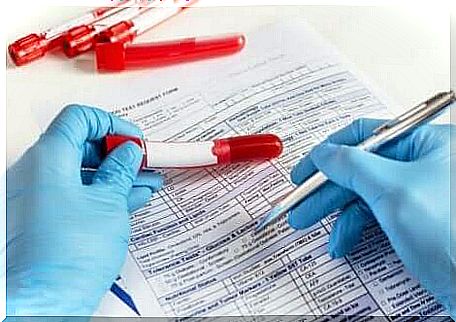
Why is it important to fast before a blood test?
When the day comes when you need a blood test, it’s important to fast for at least eight hours beforehand. In other words, don’t consume any food or liquids (other than water) from the night before. This is because the blood absorbs food and drink and this can change certain parameters.
However, whether or not a patient should fast, and for how long, depends on which tests are performed. For example, if your doctor only determined a differential blood cell count, then fasting may not be necessary. However, if glucose testing is required, adults should fast for at least eight hours and children at least three hours beforehand.
At the same time, the thyroid function analysis requires only four hours of fasting beforehand. When it comes to cholesterol levels, doctors may recommend fasting for up to 12 hours.
Another aspect to consider is medication. Certain medications, like foods, can alter blood levels. Doctors are generally aware of this and will be able to tell if you should stop taking medication or not.
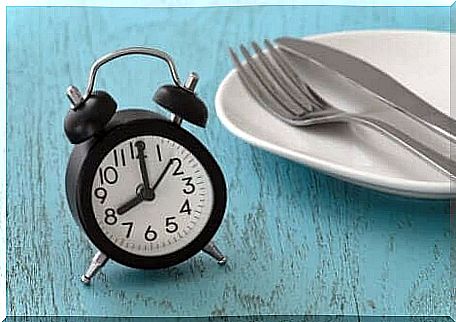
What else should you keep in mind?
Health professionals will usually indicate what you need to do to make the blood test as good as possible. First, in addition to fasting, you should avoid smoking right before the blood test. This is because tobacco can alter glucose levels.
You can drink a little water to quench your thirst. However, drinking alcoholic beverages before the blood test is not allowed. Also, you should not exercise the day before, as this can alter certain markers.
In any case, you should always consult your doctor and ask for instructions for your specific case. As we’ve mentioned, some patients may need to take a break from their medications while others won’t.
At the same time, the time a patient needs to fast for the blood test can also vary. It is therefore best to discuss this with your doctor in person.


